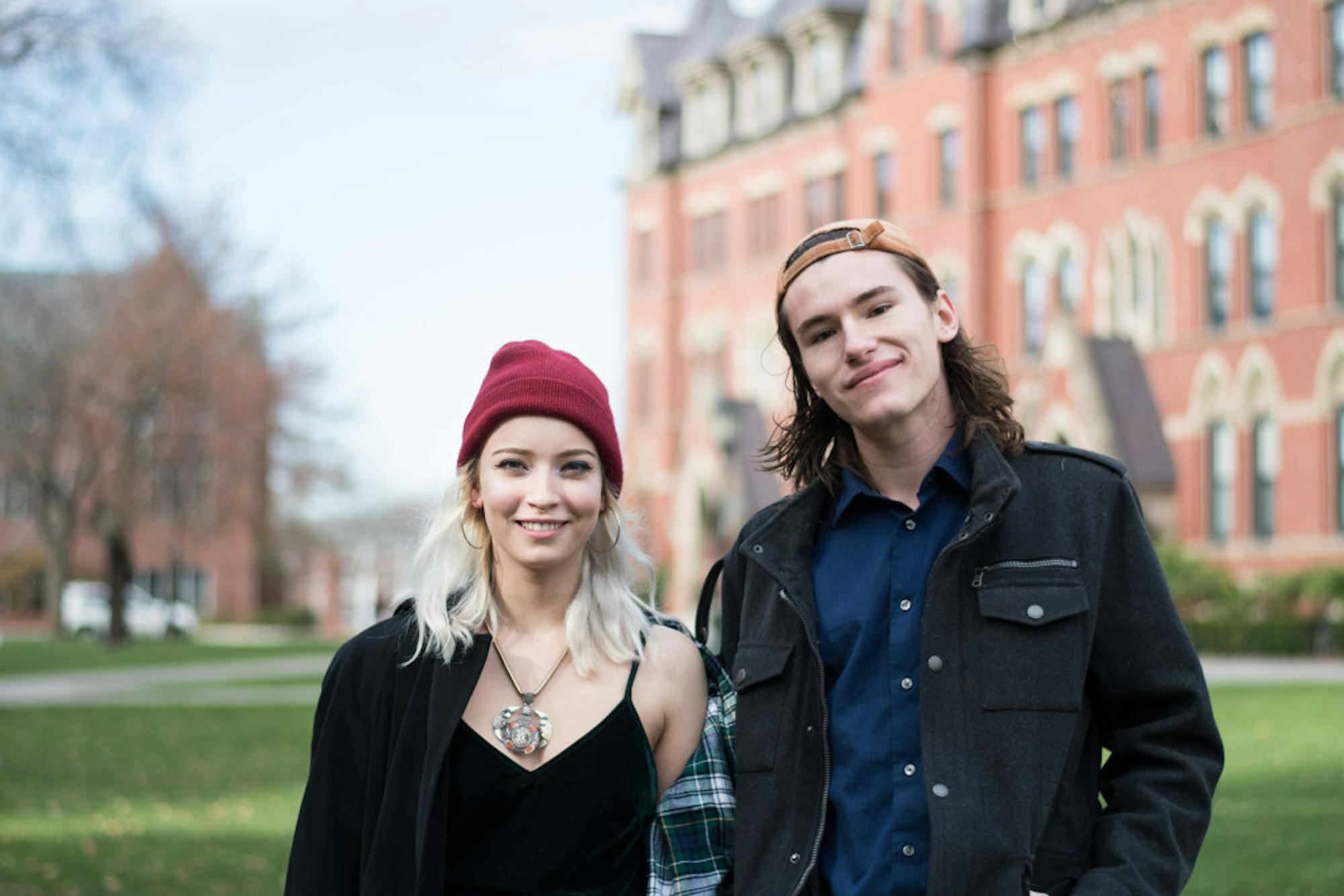The university's newest literary magazine, Future Histories, held its first meeting this month. Founders Sarah Walsh and Hunter Silvestri, both juniors, organized the magazine, which hopes to fill a void at Tufts.
There has not been a consistent literary magazine at the university since September 2016, when the Cannon Literary Journal posted on its Facebook page: "This journal no longer exists. Thank you to everyone who read it once upon a time, but from now on we will only be posting memes." The journal was transformed into NightBrunch, a literary journal aimed at seeking diverse narratives.
After NightBrunch's initial general interest meeting (GIM), however, the founder decided to halt the process, according to Fiona Sharp, assistant editor at NightBrunch and now content manager for Future Histories.
According to Sharp, a junior, the executive board of Future Histories will be larger than that of the Cannon, and the process will be more transparent.
“Our goal is to be an inclusive literary group, not cliquey like the Cannon ended up being," she said.
Silvestri further explained the inclusive nature of Future Histories.
“Future Histories is intended to be a catch-all literary magazine, which is a necessary part of a college campus experience,” Silvestri said.
Walsh and Silvestri both stressed that, despite both being cisgender and white, they do not want the entire club to consist of only one narrative. For example, after being approached by a student at the GIM, Walsh and Silvestri agreed to publish multilingual submissions in the magazine.
“We have reached out to other clubs such as cultural ones to ensure they know about our magazine, and they understand that it is a place where their voices can be heard,” Walsh said.
According to Sharp, the group's first GIM was a success, with more than one hundred people signing up to be on the email list. Instead of having students apply for generic executive board positions, Walsh and Silvestri plan on allowing students to suggest their own positions.
“If [students] are interested, they can apply to fill the position(s) they have suggested," Walsh told the Daily in an email.“Otherwise, they can simply give us their pitch ... It gives any interested student the opportunity to shape the publication's fundamental character from the outset. We want to grow in the directions that impassion our constituents and open our infrastructure to everyone's great ideas."
In addition to the print component of the magazine, Silvestri envisions an online component as well, where more long-form prose and poetry can be published.
“If students wanted to read their poetry as well, we could include the audio alongside the poem, in order to create cross-disciplinary art,” he said.
According to Walsh, part of the inspiration to create such a magazine comes from their own personal histories.
“We're both queer students who were raised by single mothers in low-income households. We are in many ways privileged individuals, but our upbringings were neither stable nor straightforward, especially in the context of Tufts' economic homogeny,” Walsh said. “These identities and the way they impact our own interactions with the world are a driving force behind our motivation to create a platform for diverse and marginalized voices.”
New literary magazine Future Histories launches

The co-founders of Future Histories, Sarah Walsh and Hunter Silvestri pose for a photo on Nov. 12. 2017 on the Academic Quad





